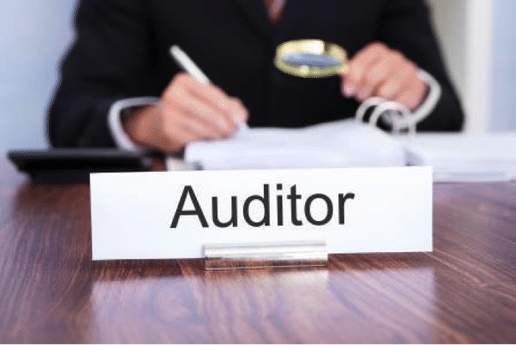
Ever since the collapse of Enron, we’ve seen auditors under question. I’m sure most of you can remember the Enron disaster but, just in case, the company went from Energy King to Futures Basketcase faster than Lewis Hamilton could catch up with Sebastian Vettel yesterday. Much blame was placed on their auditor, Arthur Anderson, who were caught shredding the company’s audit files just minutes before being raided for evidence. The result was that the CEO of Enron was jailed, and Arthur Anderson disappeared off the face of planet Earth.
Their activities have not been too much in the limelight until recently, but I have noticed more and more fines appearing in the last few months for audit failures. For example, last year:
PwC was fined £5.1m over RSM Tenon audit and Nicholas Boden, senior statutory auditor and audit engagement partner and ICAEW member, was fined £114,750.
PwC were also fined £5m over Connaught audit with retired PwC audit partner Stephen Harrison reprimanded and fined £150,000 for his role in the audit.
KPMG was fined $6.2m (£4.8m) by the US Securities and Exchange Commission (SEC) over its audit of Miller Energy, with the SEC stating that KPMG and John Riordan, KPMG’s engagement partner, failed to properly assess the risks and did not provide adequate staff.
The FRC fined EY £1.8m over misconduct relating to the audit of the financial statements of Tech Data Limited for the financial year ending 31 January 2012, and Julian Gray, senior statutory auditor and audit engagement partner, was fined £59,000 after he and the firm admitted that their conduct “fell significantly short” of the expected standards.
Other fines throughout the year were incurred in the US and UK. This year it’s happening again. In June, PwC received a record fine of £6.5 million over the collapse of BHS, and both KPMG and Deloitte are being investigated over audit irregularities.
It begs the question: what is the role of an auditor?
The dictionary definition is:
A person appointed and authorized to examine accounts and accounting records, compare the charges with the vouchers, verify balance sheet and income items, and state the result.
But the problem is that this person is paid to do this by the company they are auditing. As a result, it creates an interesting relationship. The company you are being paid to audit would be really pissed off if you did your job properly and called them out for improper conduct. If you wouldn’t sign off their accounts, they probably wouldn’t pay your fees. So, you have to have a little leeway, and the question is how much leeway does the auditor give?
Too much, and they aren’t doing their job; too little, and the client will cry foul. It’s a fine line and balancing act, but recently the Financial Times wrote about KPMG having a death wish. It’s under the FT Premium service, so many of you won’t be able to read it, but the heart of what was being said is that the Big Four auditors are systemically important and need living wills for failure, just like the big banks.
It’s interesting to see our thinking these days, and I believe it’s because of the rise of global systemically important systems and structures. The credit rating agencies were blamed for failing to assess the banks correctly before the crisis; the big banks were blamed for failing to model risk in their systems that related to reality; and now the big auditors are being blamed for companies failing due to their lack of robust audit practices.
In fact, our world is so systemically connected that any failure of any part of the system implies the whole thing could come tumbling down like a deck of cards. Having said that, that is exactly what happened in 2008 and we’ve done a pretty good job of reassembling the deck of cards. It was hard, but we did it and we’ll do it again if it happens again … won’t we?
Chris M Skinner
Chris Skinner is best known as an independent commentator on the financial markets through his blog, TheFinanser.com, as author of the bestselling book Digital Bank, and Chair of the European networking forum the Financial Services Club. He has been voted one of the most influential people in banking by The Financial Brand (as well as one of the best blogs), a FinTech Titan (Next Bank), one of the Fintech Leaders you need to follow (City AM, Deluxe and Jax Finance), as well as one of the Top 40 most influential people in financial technology by the Wall Street Journal's Financial News. To learn more click here...

